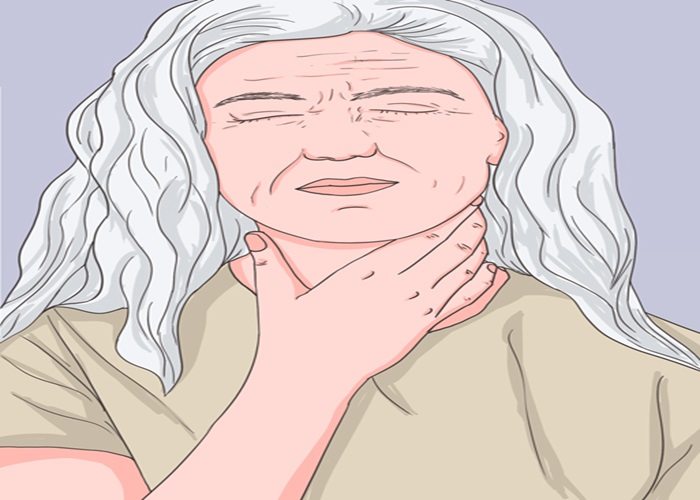A hiatus hernia occurs when part of the stomach protrudes through the hiatus, an opening in the diaphragm that allows the esophagus to pass through and connect to the stomach. This condition can lead to various symptoms and discomfort, and understanding its causes is crucial for both prevention and treatment.
Anatomical and Structural Factors
Weakness in the Diaphragm
The diaphragm is a large, dome-shaped muscle that separates the chest cavity from the abdominal cavity. A natural weakness or thinning in the area of the hiatus can make it more likely for a hiatus hernia to occur. This weakness can be congenital, meaning some people are born with it. In such cases, the normal structure of the diaphragm may not provide 足够的支撑力 to keep the stomach in its proper position.
As people age, the diaphragm can also weaken over time. The muscle fibers may lose their elasticity and strength, increasing the risk of a hiatus hernia. This age-related weakening is often a combination of normal wear and tear and the effects of gravity pulling the abdominal organs downward.
Abnormalities in the Esophageal Hiatus
The size and shape of the esophageal hiatus can vary from person to person. Some individuals may have a larger or more oval-shaped hiatus, which can create a larger opening for the stomach to bulge through. Additionally, if the hiatus is not properly aligned or if there are any congenital defects in its structure, it can increase the likelihood of a hernia.
For example, in some cases, the esophageal hiatus may be too wide or the ligaments and tissues that surround it may be lax, allowing the stomach to move more freely and potentially herniate through the opening.
Lifestyle and Behavioral Factors
Obesity
Excessive body weight is a significant risk factor for hiatus hernia. The extra fat in the abdomen puts increased pressure on the diaphragm and the abdominal organs. This pressure can push the stomach upward through the hiatus, causing a hernia. In fact, obese individuals are several times more likely to develop a hiatus hernia compared to those with a healthy weight.
The distribution of fat also matters. Central obesity, where fat is predominantly stored around the abdomen, is particularly harmful as it directly impacts the pressure on the diaphragm. Losing weight can often help relieve the pressure and may even reduce the size of the hernia in some cases.
Heavy Lifting and Straining
Repeatedly lifting heavy objects or performing strenuous activities that involve sudden and forceful straining can increase the intra-abdominal pressure. This increased pressure can force the stomach up through the hiatus and cause a hernia. Activities such as weightlifting, moving heavy furniture, or even chronic coughing and sneezing can have a similar effect.
People who have jobs that require frequent heavy lifting or those who engage in intense physical activities without proper technique are at a higher risk. It’s important to use proper lifting techniques and avoid excessive straining to reduce the risk of developing a hiatus hernia.
Smoking
Smoking has been linked to an increased risk of hiatus hernia. The chemicals in cigarette smoke can cause damage to the tissues in the diaphragm and the esophageal hiatus. Smoking can also lead to chronic coughing, which further increases the intra-abdominal pressure and the likelihood of a hernia.
Additionally, smoking can affect the normal function of the lower esophageal sphincter (LES), a muscle that normally prevents the backflow of stomach acid into the esophagus. A weakened LES can contribute to acid reflux, which is often associated with hiatus hernia and can exacerbate the symptoms and the condition itself.
Medical Conditions and Factors
Connective Tissue Disorders
Certain connective tissue disorders, such as Ehlers-Danlos syndrome and Marfan syndrome, can affect the strength and integrity of the tissues in the body, including those in the diaphragm and the esophageal hiatus. People with these disorders have a higher risk of developing a hiatus hernia due to the weakened connective tissues that are supposed to hold the organs in place.
In Ehlers-Danlos syndrome, for example, the body’s collagen production is abnormal, leading to overly stretchy and weak tissues. This can make the diaphragm and the surrounding structures more prone to allowing the stomach to herniate through the hiatus.
Pregnancy
During pregnancy, the growing fetus and the expanding uterus can put significant pressure on the abdominal organs and the diaphragm. This increased pressure can cause the stomach to be pushed upward and potentially herniate through the hiatus. Hiatus hernias are relatively common in pregnant women, especially in the later stages of pregnancy.
Hormonal changes during pregnancy can also relax the muscles and ligaments in the body, including those in the diaphragm and the LES. This relaxation further increases the risk of a hernia and can also lead to symptoms of acid reflux, which is often associated with hiatus hernia in pregnant women.
Conclusion
Hiatus hernia is a complex condition with multiple causes. Anatomical and structural factors, lifestyle and behavioral choices, and certain medical conditions can all contribute to its development. Recognizing these risk factors and making appropriate lifestyle modifications, such as maintaining a healthy weight, avoiding heavy lifting and smoking, and managing underlying medical conditions, can help reduce the risk of developing a hiatus hernia. Early detection and treatment are also important to prevent potential complications and manage the symptoms associated with this condition. If you suspect you have a hiatus hernia or are experiencing symptoms such as heartburn, chest pain, or difficulty swallowing, it’s important to consult a healthcare provider for an accurate diagnosis and appropriate treatment.
Related topics:
- Hand Foot And Mouth What Does It Look Like?
- How Do They Check Your Appendix?
- What Are The Different Types Of Diabetes?


